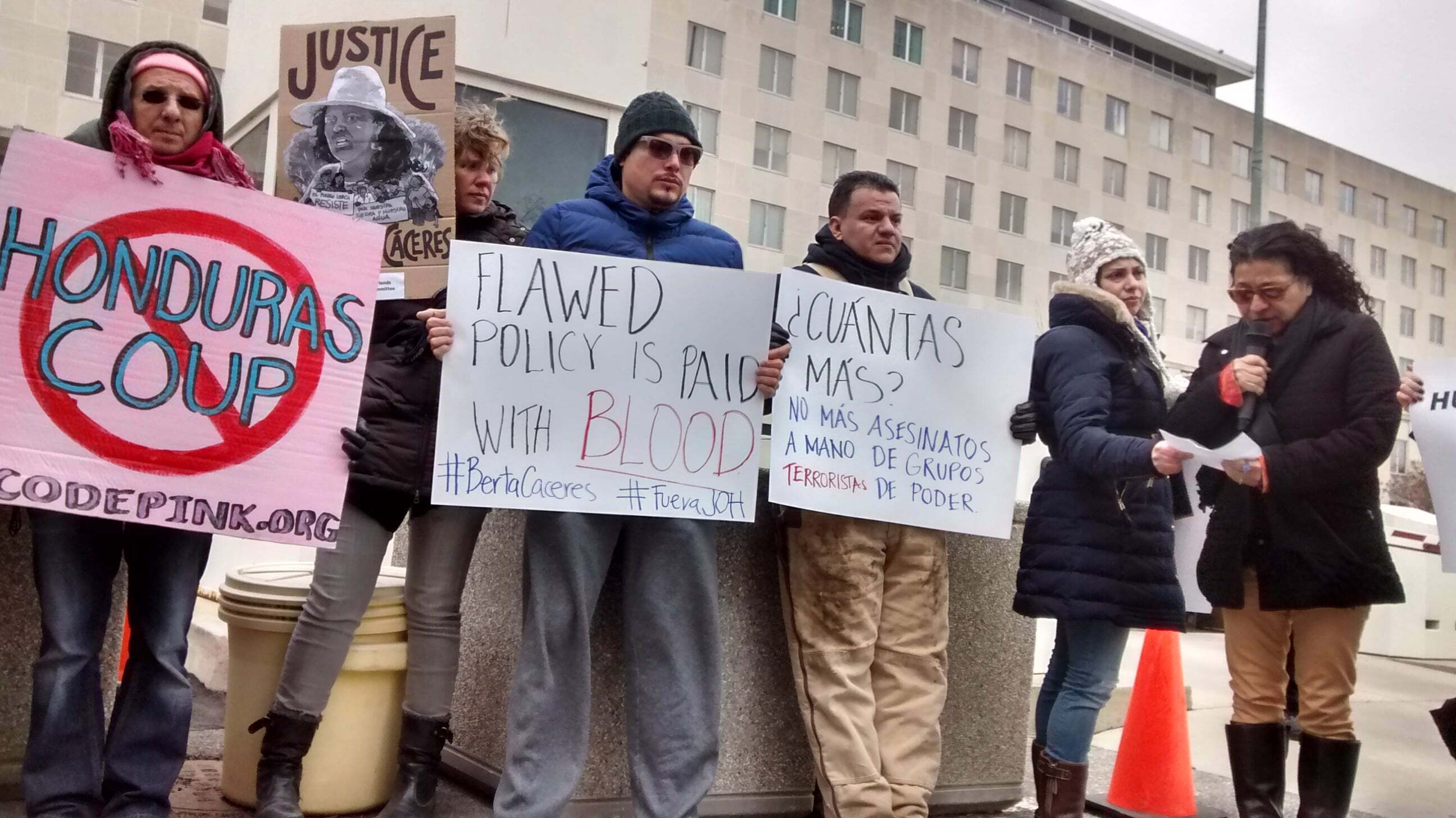
Honduras is one of the least secure countries in the world regarding human rights defenders’ safety and rights. Berta Caceres, a courageous environmental and human rights defender in Honduras, was murdered on 3 March 2016, and she is just one name among others.
An event tackling this issue was held on Monday 6 June. It featured three Honduran human rights defenders, as well as the Special Rapporteur on the situation of human rights defenders and the representative of the Permanent Mission of Norway, as the country presented a resolution on protecting human rights defenders.
A harsh situation for human rights defenders
The speakers went through a short overview on the difficult situation for human rights defenders, but also the roots and causes of their vulnerability.
In response to the many macro-development projects being planted in Honduras regardless of their impact on communities or the environment, many Hondurans are committed in the defence of human rights and the environment.
Their situation has deteriorated since the Coup d’Etat of 2009 and the degradation in the constitution. The new government has provided many concessions to mining and urbanism projects: more than 50 projects have been accepted since 2013. The main one is the electrical project of Agua Zarca, to which Berta Caceres was protesting and that led to her murder.
Lack of protection measures
Honduran human rights defenders live in constant fear. Berta Caceres was already asking for protection before her assassination but the security ministry did not grant satisfying measures. Even though the ministry has the highest budget of all, it often argues lack of resources when not providing enough diversity of protection measures to human rights defenders. The situation in terms of security is degrading: because human rights defenders are not recognised as a legal figure, they have no special protection measures available.
Honduran human rights defenders in Geneva underlined the necessity to have protection measures adapted to their needs. When the State grants protection, they claim, it is limited to one police officer, but it is difficult to trust the police officer when it is often police agents that have threaten or attacked human rights defenders. Furthermore, they claimed they have to provide food and gas for the police officers to subsist and commute during their shift.
One human rights defender argued they would feel more secure if people from their own communities would play that role of protecting them, it is difficult to trust the armed forces that are so corrupted, however these alternative measures have not yet been ever accepted.
The government of Honduras affirmed that alternatives to traditional protection measures are being studied and that they have the willingness to improve the efficiency of protection.
An important element also is the image that is given of human rights defenders. To improve their protection, the narrative on human rights defenders needs to change. They are often pictured in the media as gangster against development or terrorists, instead of agents of change. Their positive role must be emphasized.
States are not the only responsible for the situation, the important role of transnational companies also has to be taken into account: they are often responsible of the attacks against defenders.
Impunity for cases of murders of human rights defenders such as Berta Cáceres also needs to end.




